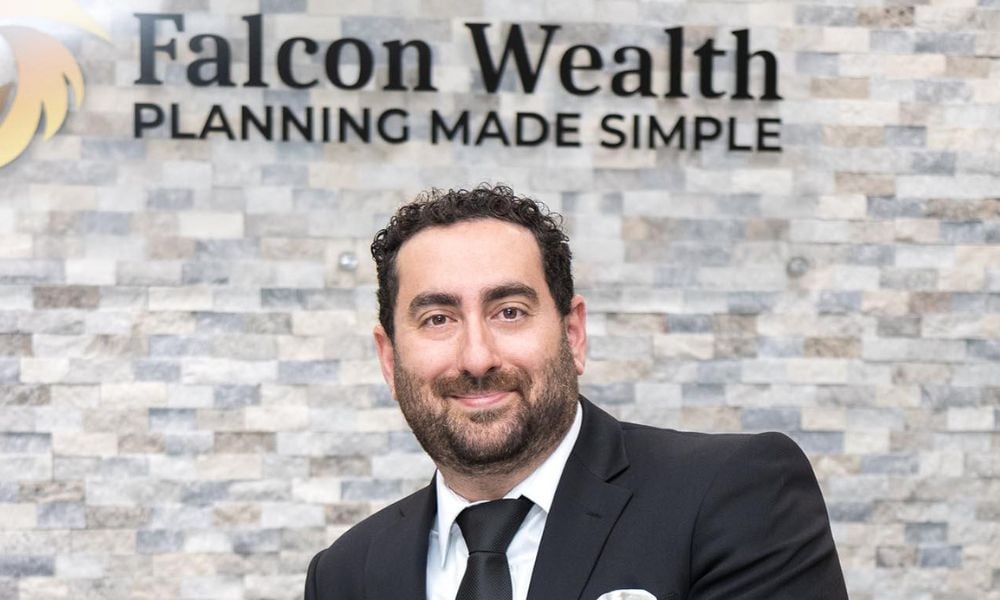

A growing awareness of tax planning issues amongst high-net worth clientele is creating tension in the sector, as more and more individuals are clued up on impending legal changes. For Gabriel Shahin, Principal and Founder of Falcon Wealth Planning, this has spurred on changes in his own firm too.
"I would say probably the biggest [issue] is this ticking tax time bomb that they’re sitting on,” he tells IN. “They're starting to realize a lot of our clients are becoming a lot more educated.”
This growing awareness among clients, many of whom are engineers, has influenced the firm’s approach to being fee-only, which aligns with their preference for a transparent, salary-based relationship over commission-based models. And, with significant changes to tax laws on the horizon, including the return of the $1 million mortgage interest deduction in 2026, Shahin stresses the need for proactive planning.
"We could start off with just the tax rates are going to go up in all brackets," adds Shahin, highlighting the potential impact of the alternative minimum tax, which could push some taxpayers into a 35% bracket. Estate planning is also becoming increasingly important as the exemption amount drops from $12 million to $6 million. Here, Shahin suggests strategies such as irrevocable trusts, spousal trusts, and charitable giving to mitigate these changes.
"There are necessary things that are going to be done," he adds, noting the higher tax benefits of delaying charitable giving until after 2025. One key strategy Shahin emphasizes is the Roth conversion, which can provide significant long-term tax benefits.
“You really have to take a look at what your tax bracket is today. Instead of $5 million in your IRA, have $3.7 million in a Roth as it continues to grow tax free," he suggests. "You're paying inevitable tax. And, in addition to that, it's at a low rate.”
Shahin is also critical of the broader financial advisory industry, particularly the tendency to avoid giving tax advice.
“Fee-only advisors to less than 2% of the industry," he points out. Many advisors, particularly those affiliated with broker-dealers, refrain from offering tax guidance, often defaulting to the advice of consulting a tax advisor. Shahin contrasts this with his firm’s integrated approach, despite it being a "losing proposition" financially.
"Our tax business, it's a losing proposition. We don't make money on the tax side, but it allows us to give this tax advice, to add a tax alpha to somebody's not only portfolio, but their overall plan,” he tells IN.
Highlighting the deficiencies in the industry, Shahin mentions Vanguard's approach to Roth conversions as a prime example.
"Vanguard, multi-trillion dollar company, and you know what their recommendation is? 100% of the time for Roth conversions. It doesn't matter when or how much they make or what the future is on day one, I don't care how much you have, we're going to convert 100% of what you have in a retirement into a Roth.”
This blanket strategy, he argues, overlooks the nuances of individual financial situations and lacks the tailored approach necessary for effective tax planning. Because, after all, Shahin’s commitment to comprehensive financial planning is deeply personal, stemming from his own experiences. The premature death of his father in 2008 left his family unaware of certain Social Security benefits, a gap that profoundly influenced his career.
"My mother had no clue about it," he recalls, emphasizing the real-world impact of financial planning beyond mere investment advice.
And,iIn light of the upcoming changes in tax laws, Shahin advocates for a detailed and personalized approach to tax planning. He stresses the importance of understanding and leveraging the nuances of the tax code to maximize benefits and minimize liabilities.
"Paying taxes now at a lower rate can mitigate higher future taxes and reduce estate taxes.”
Shahin argues for redefining the role of financial advisors to include tax and holistic planning.
"It should be a financial advisor, a financial consultant. The impact you can do for somebody is way more than I could squeeze out an extra two to three percent if I do it on your behalf.”

Relationships are key to our business but advisors are often slow to engage in specific activities designed to foster them.

Whichever path you go down, act now while you're still in control.

Pro-bitcoin professionals, however, say the cryptocurrency has ushered in change.

“LPL has evolved significantly over the last decade and still wants to scale up,” says one industry executive.

Survey findings from the Nationwide Retirement Institute offers pearls of planning wisdom from 60- to 65-year-olds, as well as insights into concerns.
Streamline your outreach with Aidentified's AI-driven solutions
This season’s market volatility: Positioning for rate relief, income growth and the AI rebound
